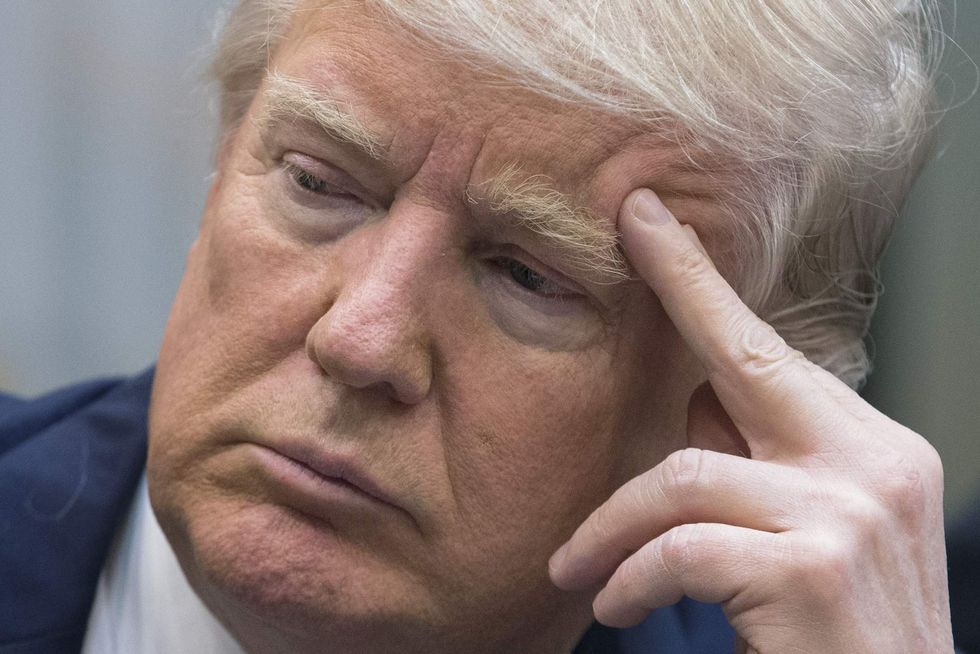Sen. Richard Blumenthal (D-Conn.) told reporters on a conference call Tuesday that nearly 200 Democratic members of Congress were suing President Donald Trump because they believe he's acting unconstitutionally. And they want the court to stop him.
At question is whether Trump should be profiting from payments from foreign governments, called Emoluments in the Constitution, without congressional approval.
The Constitution's Emoluments Clause states: "No title of nobility shall be granted by the United States: and no person holding any office of profit or trust under them, shall, without the consent of the Congress, accept of any present, emolument, office, or title, of any kind whatever, from any king, prince, or foreign state."
In a filing Friday, the Department of Justice argued that the foreign Emoluments Clause of the Constitution did not apply to Trump receiving payment from foreign dignitaries at his hotels and golf clubs because they were fair-market commercial transactions and did not therefore need congressional approval.
The DOJ filing also argued against a previous lawsuit on the basis that they did not have proper standing to sue the president. But members of Congress say they would have standing, since the Emoluments Clause specifically cites the legislature as having to give permission for such payments.
"We have standing that no one else has" because "the consent of Congress is absolutely essential," Blumenthal said.
The Department of Justice cited the example of the first president of the United States in order to exonerate the 45th:
Neither the text nor the history of the clauses shows that they were intended to reach benefits arising from a president’s private business pursuits having nothing to do with his office or personal service to a foreign power. Were plaintiffs’ interpretation correct, presidents from the very beginning of the Republic, including George Washington, would have received prohibited "emoluments."
They argued that Washington exported flour and cornmeal from his Virginia plantation to many countries during his term, while Thomas Jefferson did the same with tobacco to Great Britain.
Richard Painter, former White House chief ethics lawyer for President George H.W. Bush, gave the rationale for one of the prior lawsuits contending that Trump was breaking the Emoluments Clause.
"They do have a case," he said while a guest on MSNBC. "And I am a counsel in this case, I'm also the vice chair of Citizens for Responsibility and Ethics in Washington, which brought the original case, and the concern is that it is unconstitutional for a person in a position of trust with the United States government to be receiving any money from foreign governments or entities controlled by foreign governments."
"And this is a year in which a foreign government has sought to manipulate our political system," he continued. "This concern of the Founders is a very real one, it's an important provision of the Constitution."
Blumenthal told reporters that they believe the president benefits from profits originating in at least 20 different countries.
White House press secretary Sean Spicer denied the accusations, saying that partisan politics was the motivating factor in the lawsuits.





